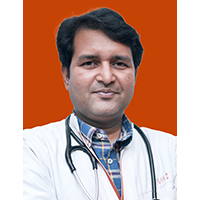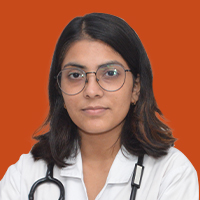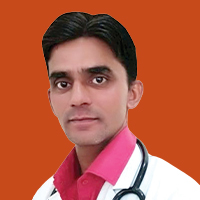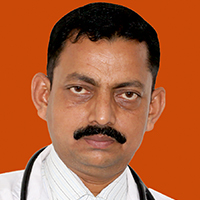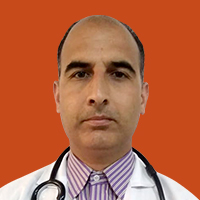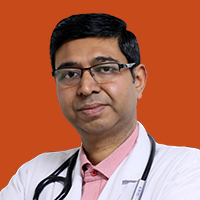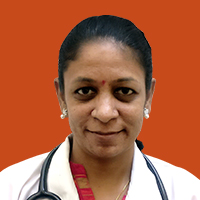

Successful Treatments
Clinics
Doctors
What is Depression?
Depression is one of the most common mental disorders: it has always been characterised by persistent feelings of sadness, emptiness, and hopelessness. It impacts day-to-day life, relationships, and general well-being. Depression can happen to anybody, but treatment is available and depression is a treatable condition.
Common Causes of Depression
The causes of depression remain multifactorial and vary between individuals and cases. However, some of the known factors that may trigger its occurrence include:
- Biological Factors
Genetics, some neurotransmitter imbalances, hormonal swings, etc. - Psychological Factors
Major stressors, negative thought cycles, unresolved trauma, etc. - Environmental Factors
Lack of social networks, lack of support systems, toxins, etc.
Depression Symptoms
Prolonged feelings of sadness, emptiness, or hopelessness
Loss of interest in activities that once pleasured
Sudden changes in appetite or weight
Either insomnia or sleeping too much
Fatigue or loss of energy
Inability to concentrate or make decisions
Thoughts of low self-worth or excessive guilt
Ideas of death or suicide
Ayurvedic Treatment for Depression
Customised Ayurvedic Medicines
Based on your constitution and symptoms, our doctors will prescribe customized herbal formulations to restore balance in both body and mind.
Yoga and Meditation
We have class after class in yoga and meditation to reduce stress, improve concentration, and create emotional strength.
Ayurvedic Treatments
Panchakarma, therapeutic massages, and other Ayurvedic treatments detoxify and rejuvenate the body, calm nerves, and bring one to a new life.
Dietary and Lifestyle Reformation
Our health experts offer tailored diet and lifestyle reformation recommendations to assist in your mental journey.
A holistic approach to addressing depression, combining ancient Ayurvedic wisdom with modern medical knowledge, is what Jiva Ayurveda believes will help deal with depression.
Ayurvedic Medicines For Depression:
The following are some commonly used Ayurvedic Herbs in Ayurvedic medicines for depression.
Ashwagandha (Withania somnifera)
Ashwagandha is one of the most famous adaptogens, usually called "Indian ginseng," used in reducing stress, anxiety, and cortisol. It is said to promote relaxation and improve the mood.
Brahmi (Bacopa monnieri)
A Brain tonic, Brahmi enhances cognitive functions, improves memory, and calms the mind.
Shatavari (Asparagus racemosus)
Shatavari rejuvenation herb nourishes the nervous system, reduces anxiety, and promotes all-around well-being.
Vacha (Acorus calamus)
It is itself a very potent antidepressant herb with many benefits like mood regulation, improving digestion, and reducing anxiety.
FAQs
The reasons for depression are complicated and unique for each individual. However, most of them share a commonality: the onset of depression is attributed to an interaction of several biological, psychological, and environmental factors.
Yes. Depression is one of the major serious medical conditions that tend to interfere with the quality of your life. Without treatment, it may lead to critical consequences such as suicidal ideas.
Whereas everyone at one point has experienced sadness or a low mood, depression is a state that lasts for much longer periods and impacts day-to-day activities.
Yes; some people get depression due to certain medical conditions. Such medical conditions include some thyroid disorders or hormonal imbalances.
Be nonjudgmental and empathetic, encourage them to seek professional help, and be patient.
Bipolar disorder characteristically presents with predominant chronic depression, while an individual subjected to it experiences mania or hypomania alternating with periods of depression.
Although there is no guarantee of preventing depression, a healthy lifestyle, managing stress, and seeking support might assist in reducing the risk.
Yes. Depression can occur in children and teenagers, but the symptoms are not quite the same as in adults.
As part of treatment, adding therapy like cognitive-behavioural therapy or interpersonal therapy will help you notice and work through negative thought patterns and learn ways to cope.
For some individuals, substance abuse remains a way out of depression.
In a woman, postpartum depression may develop after childbirth. It is regarded as a severe condition and should be treated seriously.
Even though depression can never be treated rightly, it remains a treatable condition. Many patients with depression can get much better with proper treatment.
Ayurvedic treatment of depression is holistic, treating the root cause of its conditioning. It may restore balance to one's body and mind, reduce symptoms, and bring about an overall good well-being.
Each individual can vary as to how long it takes to recover from depression. A person may present weeks or months with some sort of clinical symptom improvement.
Top Ayurveda Doctors
Our Happy Patients
Related Disease
- Ayurvedic Treatment for Anxiety
- Ayurvedic Treatment for Weakness and Fatigue
- Ayurvedic Treatment for Depression
- Ayurvedic Treatment for Child Bed-wetting
- ayurvedic treatment for bipolar disorder
- Ayurvedic Treatment for Psychosis
- Ayurvedic Treatment for Schizophrenia
- Ayurvedic Treatment for Sleep Apnea
- Ayurvedic Treatment For Insomnia
- Get Ayurvedic Treatment for Agoraphobia
- Ayurvedic Treatment for Autism
Latest Blogs
- क्या वैरिकोज़ वेन्स और DVT एक-दूसरे से जुड़े हैं? आयुर्वेद बताता है असली फर्क
- क्या त्वचा पर कुछ हिस्सों का अचानक रंग हल्का होने लगना Hypopigmentation है या Vitiligo? आयुर्वेदिक भेद समझें
- क्या धब्बों के आसपास खुजली या हल्की जलन Vitiligo flare का संकेत है? आयुर्वेदिक दृष्टि से समझें
- क्या रसायनिक उत्पाद, रंग-बिरंगे क्रीम या फ्रेगरेंस त्वचा पर दाग बढ़ा सकते हैं? Vitiligo में त्वचा-संवेदनशीलता आयुर्वेद से जानें
- क्या परिवार में पहले से Vitiligo होने पर बच्चों में इसका खतरा बढ़ जाता है? आयुर्वेदिक कारण समझें
- क्या तनाव बढ़ते ही सफ़ेद दाग फैलने लगते हैं? Vitiligo में मन-त्वचा संबंध आयुर्वेद की नज़र से जानें
- क्या बार-बार पेट संबंधी समस्याएँ—गैस, अपच, कब्ज़—Vitiligo को ट्रिगर करती हैं? आयुर्वेदिक व्याख्या देखें
- क्या धूप में जाने पर सफ़ेद दाग और ज़्यादा साफ़ दिखने लगते हैं? Vitiligo को आयुर्वेद की नज़र से जानें
- क्या त्वचा पर छोटे-छोटे सफ़ेद धब्बे उभरना Vitiligo का शुरुआती संकेत है? आयुर्वेदिक दृष्टि से समझें
- क्या सोरायसिस में त्वचा के साथ-साथ जोड़ों में दर्द (Psoriatic Arthritis) भी शुरू हो सकता है? आयुर्वेदिक दृष्टि से संकेत देखें
- क्या बार-बार स्टेरॉइड क्रीम लगाए बिना राहत नहीं मिलती? Psoriasis में मूल कारण कैसे समझता है आयुर्वेद—जानें
- क्या गर्मी और मसालेदार भोजन आपके Psoriasis को तुरंत flare-up करते हैं? आयुर्वेदिक कारण जानें
- क्या बार-बार त्वचा को मॉइस्चराइज़ करने पर भी सूखापन और जलन कम नहीं होती? Psoriasis को आयुर्वेद की नज़र से समझें
- क्या घुटनों, कोहनियों और पीठ पर मोटे patches बनना Psoriasis का विशिष्ट लक्षण है? आयुर्वेदिक व्याख्या जानें
- क्या बार-बार एलर्जी जैसी खुजली और जलन Psoriasis की ओर इशारा कर सकती है? आयुर्वेदिक दृष्टिकोण से समझें
- क्या सिर की त्वचा पर लगातार पपड़ी गिरना Dandruff नहीं—Scalp Psoriasis का लक्षण हो सकता है? आयुर्वेदिक संकेत देखें
- क्या तनाव बढ़ते ही त्वचा पर अचानक flare-up होना Psoriasis का क्लासिक पैटर्न है? आयुर्वेदिक कारण समझें
- क्या ठंड बढ़ते ही त्वचा फटना, लाल धब्बे और खुजली Psoriasis को ट्रिगर करते हैं? आयुर्वेद की नज़र से जानें
- क्या त्वचा पर मोटी, सफ़ेद पपड़ी बनना Psoriasis का शुरुआती संकेत है? आयुर्वेदिक दृष्टि से समझें
- क्या सिर्फ फिज़्योथेरपी से फ्रोज़न शोल्डर ठीक हो सकता है? आयुर्वेद बताता है किस चरण में क्या असरदार है
Ayurvedic Doctor In Top Cities
- Ayurvedic Doctors in Bangalore
- Ayurvedic Doctors in Pune
- Ayurvedic Doctors in Delhi
- Ayurvedic Doctors in Hyderabad
- Ayurvedic Doctors in Indore
- Ayurvedic Doctors in Mumbai
- Ayurvedic Doctors in Lucknow
- Ayurvedic Doctors in Kolkata
- Ayurvedic Doctors in Patna
- Ayurvedic Doctors in Vadodara
- Ayurvedic Doctors in Ahmedabad
- Ayurvedic Doctors in Chandigarh
- Ayurvedic Doctors in Gurugaon
- Ayurvedic Doctors in Jaipur
- Ayurvedic Doctors in Kanpur
- Ayurvedic Doctors in Noida
- Ayurvedic Doctors in Ranchi
- Ayurvedic Doctors in Bhopal
- Ayurvedic Doctors in Ludhiana
- Ayurvedic Doctors in Dehradun

